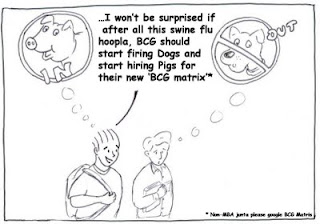 The Department of Management Studies at the Indian Institute of Technology, Madras and the Cell for Technology Innovation, Development and Entrepreneurship Support (C-TIDES) have launched the IIT Madras- MSME incubation initiative. This initiative has been set up with the assistance of the Ministry of Micro, Small and Medium Enterprises, Government of India. Dr.Thillai Rajan, Assistant Professor, Department of Management Studies, is the Coordinator of the Incubation initiative.
The Department of Management Studies at the Indian Institute of Technology, Madras and the Cell for Technology Innovation, Development and Entrepreneurship Support (C-TIDES) have launched the IIT Madras- MSME incubation initiative. This initiative has been set up with the assistance of the Ministry of Micro, Small and Medium Enterprises, Government of India. Dr.Thillai Rajan, Assistant Professor, Department of Management Studies, is the Coordinator of the Incubation initiative.The incubation initiative was recently launched by Prof. M. S. Ananth, Director, IIT Madras. Speaking on the occasion, Prof. M.S. Ananth, Director, IIT Madras, said that, “In India, the small and medium scale industries account for the maximum number of employment opportunities. Studies indicate that the small scale industries provide ten times the employment opportunities per unit of investment as compared to large scale industries. Thus, a new initiative like this would not only mean economic growth of the nation but also increase in employment opportunity rates as innovations happen predominantly in several small companies. Innovation cannot be a result of a science or a social push as in many cases it is a non-linear development. With huge investments, effective managerial skills, decentralization, and good implementation skills the innovators should be able to carve a favorable niche for themselves”
Speaking on the occasion, Prof. Job Kurian, Dean of IC&SR at IIT Madras said, “Since 1983, after the initial start of the masters degree program in Entrepreneurship, about 30% of the students have emerged as successful entrepreneurs, their ventures ranging from micro processors, process control to polymers. With IITM’s excellent IPR, any entrepreneur should be able to make it big in the society.”
Prof. L.S.Ganesh, Professor-in-Charge, C-TIDES, said, “IIT Madras has been a good breeding ground for entrepreneurship. We have a Masters’ program in entrepreneurship. Of the total 47 students who have graduated from this program, 26 have now emerged as successful entrepreneurs. Three of the successful entrepreneurs have won Govt. of India awards from President of India. ”
Describing the salient features of the incubation initiative, Assistant Professor Thillai Rajan said that, “The proposed incubation centre would be sector agnostic, broad based and inclusive. It will support ventures in any sector such as biotechnology, information technology, engineering, business management, etc. The funding support for each incubatee would be up to Rs. 0.8 million. This can be used for variety of requirements such as purchase of equipment, technology, and support infrastructure. In addition, the incubation would leverage the extensive contacts and alumni network of IIT Madras to offer mentoring services to the incubatees and assist in the next round of funding. The incubation centre would also provide a platform to the ventures that provides visibility to a much larger audience.”
Team DoMS Interface
Batch of 2011
Team DoMS Interface
Batch of 2011





